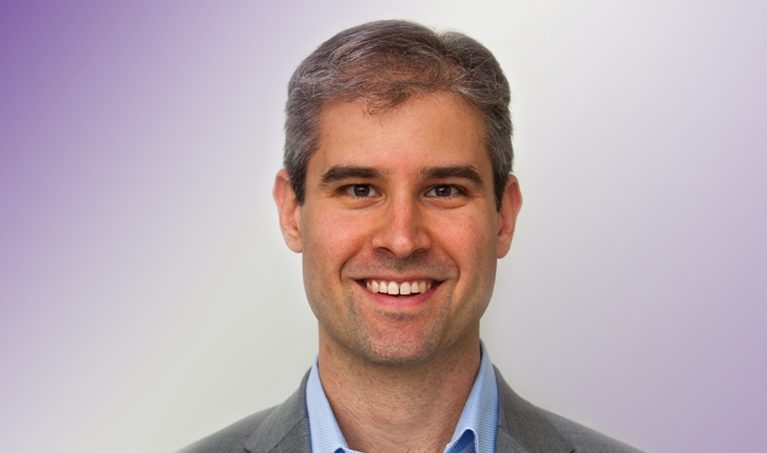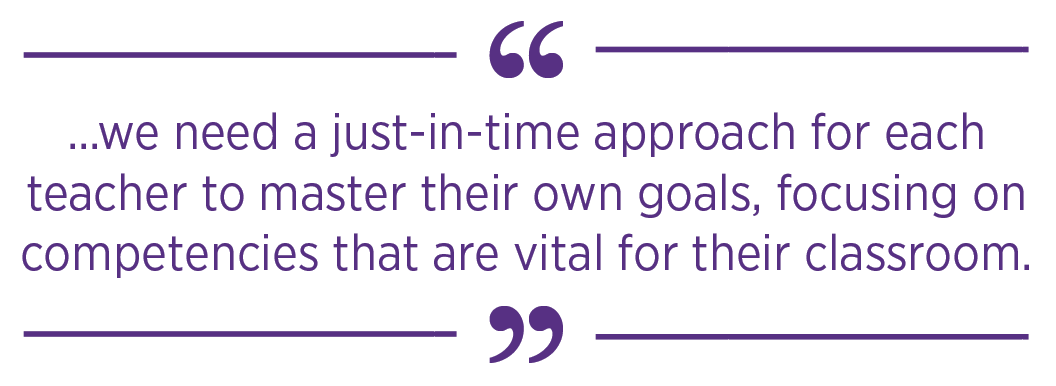
Q&A with Michael Horn
by Stephen Pham, Senior Associate, Personalized Learning
What does the future of public education look like? Few know better than Michael B. Horn. Co-founder of Clayton Christensen Institute, an innovative think-tank, and author of the award-winning book Disrupting Class: How Disruptive Innovation Will Change the Way the World Learns and the Amazon-bestseller Blended: Using Disruptive Innovation to Improve Schools, Horn is an expert on educational innovation, blended learning, competency-based learning and how to reconstruct the education system to center around students. Read on to find out Horn’s take on the evolving role of teachers, the necessary shifts in teacher preparation programs and how blended learning will transform the future of schools.
[SP] In the next three years, what do you predict to be the key shifts in education and blended learning?
[MH] In terms of blended learning in schools, we’ll likely see a lot more rotation models pop up across the country in charter and district elementary schools. At the high school level, we’ll find more experimentation with the model. We’re beginning to find how blended learning can jump from the realm of credit and dropout recovery programs into the core curriculum more and more. There are spotlight schools doing this, but we need to think about how we spread this approach to different institutions.
[SP] How do teacher roles change with the implementation and evolution of blended learning?
[MH] Here, we see a big opportunity. The role of teachers changes dramatically. Teachers are no longer lesson planning for an entire group of students put in the same activity. Mass lecture and one-size-fits-all lesson planning starts to fade away. Instead, we find the opportunity for much more realtime discussions in projects, rich feedback between teachers and students, small group tutoring, 1:1 instruction, mentorship for students and so on. Teachers will spend more time as a learning coach for the non-academic parts of learning.
We also start to see more team teaching and different specialization of roles, building career ladders for teaching roles. One really exciting thing that Rocketship has developed is their internal career pathways. Though these shifts are lost a bit in the conversation around blended learning, we see that paraprofessionals and other instructional staff members can elevate their career within the school model.

[SP] How should teacher preparation programs adapt to adequately prepare teachers for blended learning models? How can ongoing professional shift as well?
[MH] This is definitely a difficult question, as I often talk to teachers in really immersive blended learning programs. What’s interesting is that, when I ask teachers how much their programs prepared them for their current jobs, the typical reply is 5% of their training was geared towards 95% of their current work, and 95% of their training was geared to only 5% of their current practice. It’s really a brutal ratio when working with students.
Instead, we want to see teacher preparation programs approach tech in education as a pedagogical process. We need to start to prepare teachers not just with practices and competencies, but also with software. Teachers need to understand how these programs help us understand how students learn.
I’d also love to see teacher preparation programs model the blended, competency-based and personalized learning systems we want with our students. That way, teachers go into teaching knowing what the blended learning environment is like. Furthermore, schools need ongoing PD. Rather than three or four days of hearing some author lecture on something irrelevant, we need a just-in-time approach for each teacher to master their own goals, focusing on competencies that are vital for their classroom.
[SP] What is the ideal balance between teacher-led instruction (often without technology) and individualized, tech-based instruction?
[MH] I think in the longer term, technology is going to get much better at teaching core knowledge, and teachers are really going to shift into facilitating learning in the higher levels of Bloom’s taxonomy, focusing much more on the application of knowledge, skill-building and things of that nature. It’s really hard to make a generalization about this, though, because the whole idea of personalization is that each student, teacher and school has a different pathway through this, but my general sense is that our tech-based instruction will focus on the lower levels of Bloom’s, optimizing the time for teachers to focus on higher order thinking in class.
[SP] It’s clear that student agency is a key component of a blended learning model. What are successful practices in developing student agency?
[MH] I know I’m not an expert here, but one practice would be creating a really strong culture upfront of expectations for students. If you don’t have a strong culture and students are unaware of what to do with their level of ownership, learners won’t know how to make the right decisions for learning, and the system can go off rail. Rather, if we want students to own their learning, we need to explain exactly what we value and expect, and furthermore we need to model the processes that achieve student agency before letting students go into the wild. Student agency is really a competency that students should develop towards being lifelong learners, and so we need to gradually release the level of ownership, starting with more handholding around choice and leading to effective goal-setting and the power to choose what to engage in.
Another important shift to developing student agency is moving into competency-based learning. In a system where students are moving on only when they are mastered concepts, knowledge skills and dispositions. Currently, the system tells students you can own your own learning, but if tomorrow you can come in and progress to the next unit regardless of what work you did in the prior study, then you’re not really owning your learning. It’s really just a game we’re playing.
And so, student agency really requires a strong culture, gradual release and a competency-based approach.
Follow Michael B. Horn on Twitter: @michaelbhorn
Stephen is a part of Rocketship’s Achievement Team, overseeing the implementation of online learning and driving the personalized learning initiatives throughout the network. Previously, Stephen was a 5th grade Integrated Math teacher at Sí Se Puede Academy, where he first began his work leveraging blended learning strategies to improve outcomes for all students. Stephen grew up in Southern California and attended the University of California, Los Angeles where he studied biophysics. After graduating, he joined Teach for America and began his career at Rocketship. Stephen now lives in San Francisco and enjoys discussing all things technology, trying all types of foods, traveling and spending time outdoors with friends.
Follow Stephen on Twitter: @stephenqpham
Published on November 16, 2015
Read more stories about: Education Reform, Most Popular Stories.


